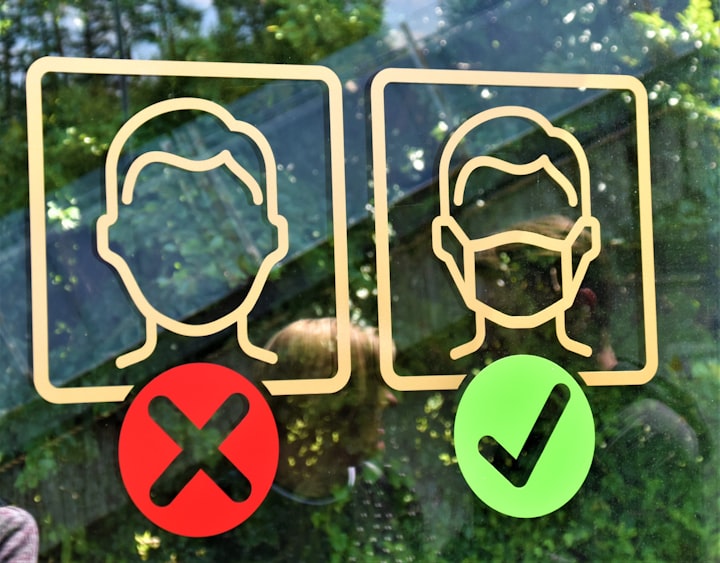The Trolley Problem & The Pandemic: What Would You Choose?
It is an issue of life or death and has nothing to do with your shopping cart.
If you think of the word ‘trolley’, what comes to mind? For those of the British persuasion, perhaps images of shopping carts come to mind. For those on the other side of the pond, ‘trolley’ more likely conjures images of streetcars that run along the tracks of many urban streets around the world.
Ask ethical philosopher, Philippa Foot, this question, and you will get an altogether more nuanced response.
Along with Judith Thomson, Philippa Foot is best known for her invention of the ‘trolley problem’, a thought experiment at the intersection of psychology and ethics. These two philosophers examined the ethical dilemmas surrounding the choices one would make if faced with a runaway trolley.
In this scenario, a person is faced with a choice. If a runaway trolley is aimed at either barrelling down five bystanders on one track, or one bystander on another, what decision would they make? Stay on the track with five bystanders, or pull the lever, diverting the track to harm one person instead of five?
This may seem like an inconsequential thought experiment. However, the ‘trolley problem’ remains relevant today after its inception in 1976. The applications are widespread. If we look at developments in technology, such as with the autonomous car, you can see the ways in which the experiment becomes a real scenario. If an autonomous vehicle is forced to make a decision between colliding with one or five persons, what choice does it make? The consequences are no longer hypothetical, but real, and grave.
From The Trolley to The Transplant Problem
Throughout the years, the trolley problem has undergone several variations, from adding additional details to the initial experiment, to changing the environment of the scenario entirely. The ‘trolley problem’, it turns out, isn’t limited to the urban streets. We can see its applications in healthcare, too. Judith Jarvis Thomson sought to look at the same type of concerns regarding virtue ethics, replacing the trolley with the issue of organ transplants.
In the ‘transplant’ scenario, we consider instead, five patients: each in need of a life-saving organ transplant, but with limited access to organ supply. Does the surgeon opt to harvest the organs from one healthy patient to save five sick patients? This may seem like an equally absurd scenario comparative to the trolley problem. You may ask yourself — ‘when would I ever be forced to make a decision like this?’
Many doctors and other healthcare workers once probably asked themselves the same question. But in 2020, and now in 2021, this scenario has become a reality for many providers.
With hospitals reaching capacity due to the coronavirus pandemic, many are forced to make the same sort of impossibly difficult decisions.
We have seen this throughout the pandemic. Throughout the pandemic, healthcare providers have been forced to make difficult decisions to prioritize a limited quantity of medical supplies in the face of increased demand.
Do you give the last remaining bed in the ICU to someone who is considered healthier or at a lower risk of dying of COVID-19? Or do you give the bed to a higher risk patient, knowing that choice could be the difference of life and death for either patient?
What about the limited supply of ventilators? Like the ‘transplant’ scenario, ventilators are in short supply, and doctors are forced to choose who gets the breath of life. The decisions are never easy, but worth considering and solving with careful consideration. We owe it to the patients, the professionals who care for them, and society at large, to truly consider the choice. The scenario is no longer a hypothetical one, but a reality.
This article was previously published on The Apeiron.
Follow more articles like this from Dr. James Goydos:
About Dr. James Goydos
James Goydos earned his M.D. from Rutgers and has over 20 years of experience as a Professor, Surgeon, and Clinical Trial Lead. He is a leading expert in skin cancer, melanoma research, and a specialist in Surgical Oncology.
Subscribe to James Goydos’ newsletter, and follow him on Good Men Project, Loop, Medium, Instagram, Facebook, YouTube, Medika Life, Doximity, Github, Kaggle, Vocal, LinkedIn, Pinterest, and Twitter!
About the Creator
James Goydos, MD
James Goydos MD - Doctor, surgeon & expert on skin cancer. M.D. from Rutgers. Experience as a Professor of Surgery, Surgical Oncologist, & clinical trial leader. Writing on cancer, detction with camera / computer vision and healthcare.







Comments
There are no comments for this story
Be the first to respond and start the conversation.